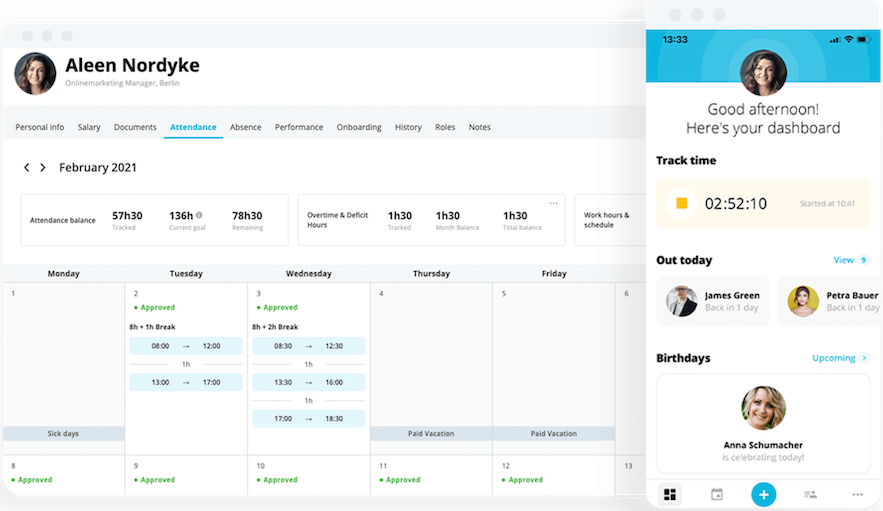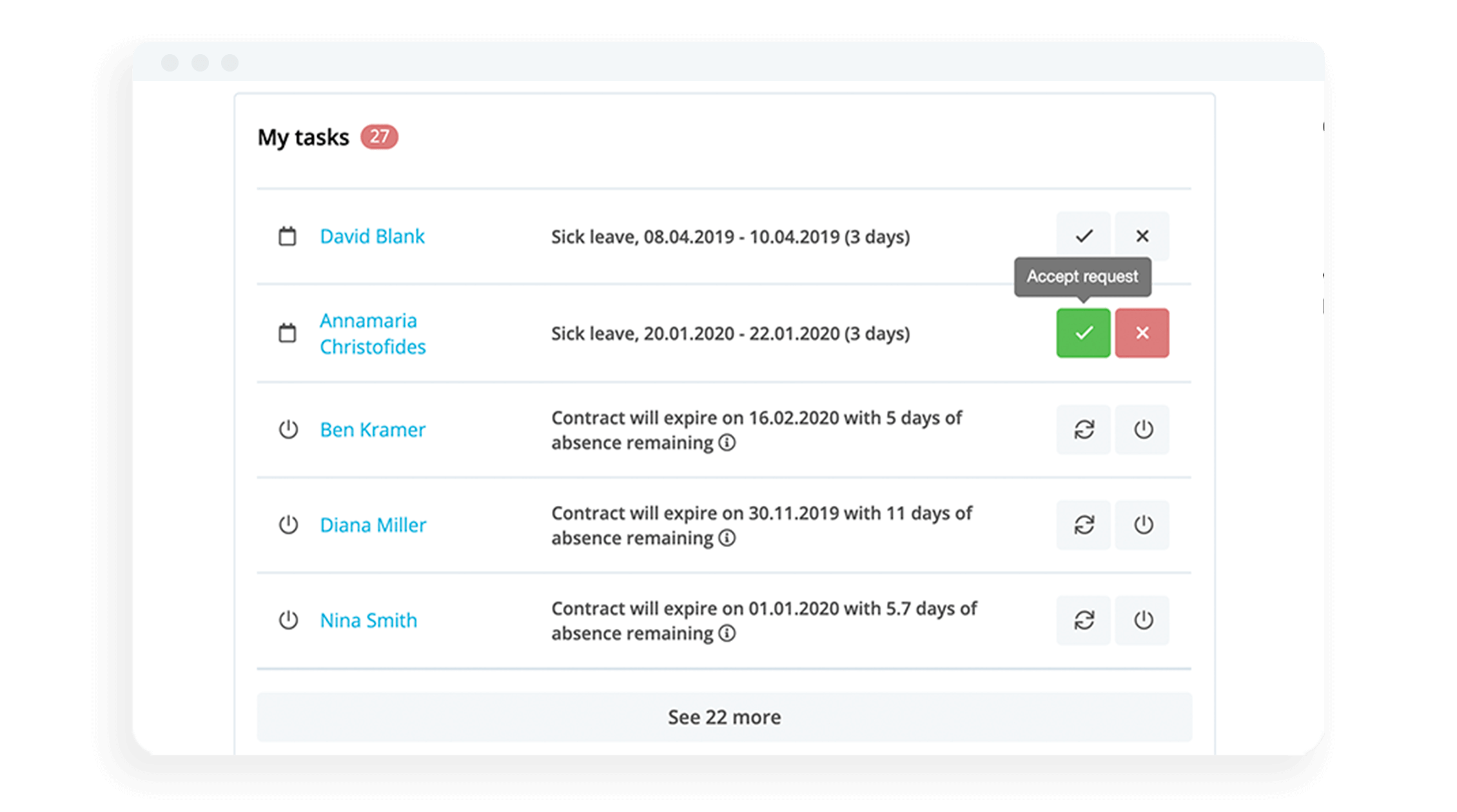
Keep Everyone Organised
Stay on top of all HR tasks and complete them on time, every time.
Create reports in seconds10. November 2020
Why HR Managers Are Spending Time on the Wrong Tasks

Recruiting talented individuals, employer branding, improving management culture – these are the tasks that HR professionals want to focus on. But is that really what the everyday working routine in HR departments looks like? We analysed several studies and found that desire and reality are actually very far apart. But there are solutions.
HR Study: The Great Reevaluation - Gain All The Insights HereContents
- 1HR Departments Have to Become the Strategic Partner of Management
- 2HR Professionals Would Be Happy to Focus on These Tasks
- 3Desire and Reality Diverge Widely in HR Departments
- 4HR Business Partner Versus “Administrative Experts”
- 5HR Managers Are Overloaded with Operational Tasks
- 6HR Software and Automation Make Room for Important Tasks
- 7Escaping the Service Provider Mentality and Becoming an Active Participant
The shortage of skilled professionals and time-consuming recruitment are two of the greatest current challenges – those in charge agree on that. Vacant positions are slowing down growth in many businesses. So, it would be logical for HR to take on a key role in companies and be included in all strategic issues. The reality is different.
HR Departments Have to Become the Strategic Partner of Management
As early as 1997, management consultant Dave Ulrich reformulated the role of HR management with the term “HR business partner”, the idea being that the HR department must develop from being purely an internal service provider to working in partnership with management. It should mainly work on strategic issues and contribute to value creation: leading rather than simply managing.
The “HR business partner” model describes in theory what many HR professionals nowadays specifically want: to escape the hamster wheel of day-to-day business and petty administrative tasks. Instead they would like to work on strategic issues and have a say in the future of their company.
HR Professionals Would Be Happy to Focus on These Tasks
HR professionals know exactly where the focus of modern HR work should be. In the study “Recruiting Trends 2017”, the HR departments in 297 companies were asked: Which issues should be at the top of an HR department’s agenda?
The list of the most frequent answers reads like a listing of top HR trends, including employee retention and recruitment, employer branding, and talent management. Slightly less self-evident topics such as the improvement of corporate and management culture or increasing the flexibility of working structures were also mentioned.
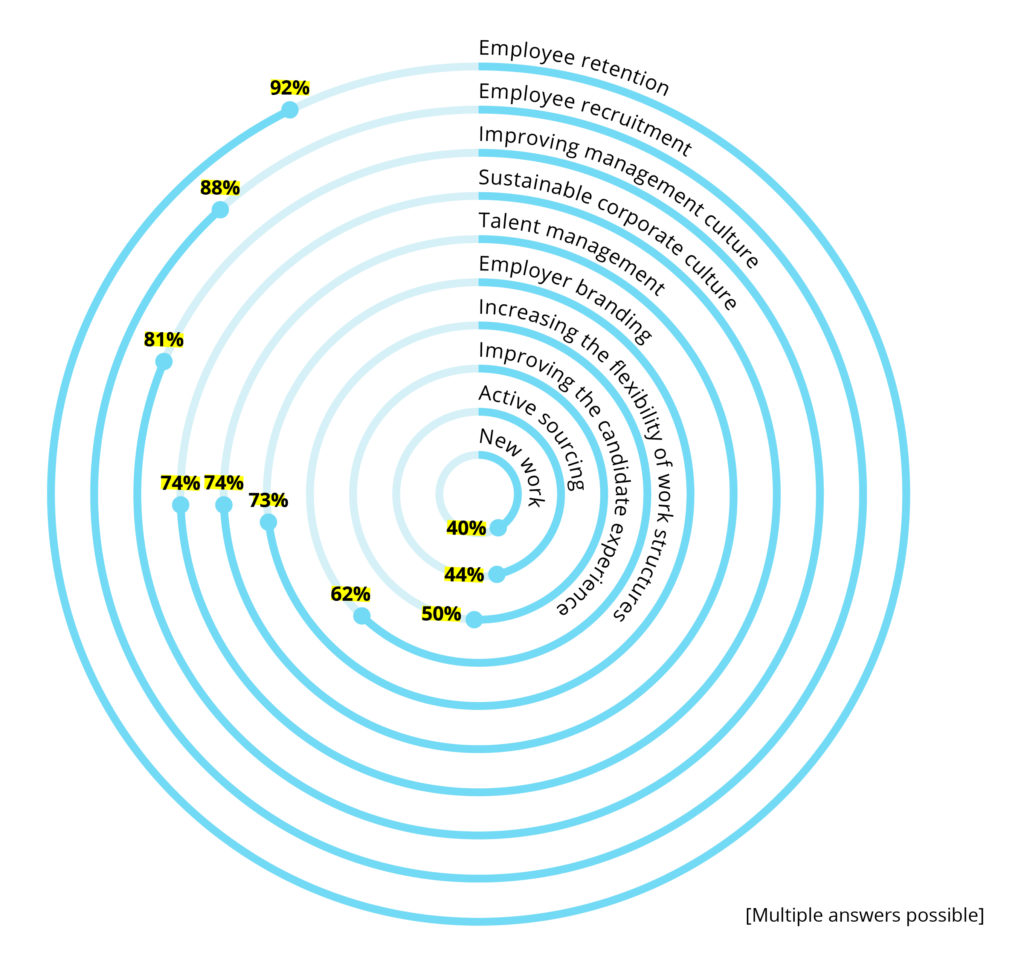
A further study entitled “Innovative HR Management” confirms that HR departments are aware of where the challenges of the coming years lie. Sixty-two per cent of the surveyed HR managers agreed that adapting HR strategy to the dynamic needs of the business is a (very) big challenge. When it comes to recruiting skilled employees and managers, 77 per cent feel that this is the case. For employer branding – which is still unknown in many medium-sized companies – it was still over half.
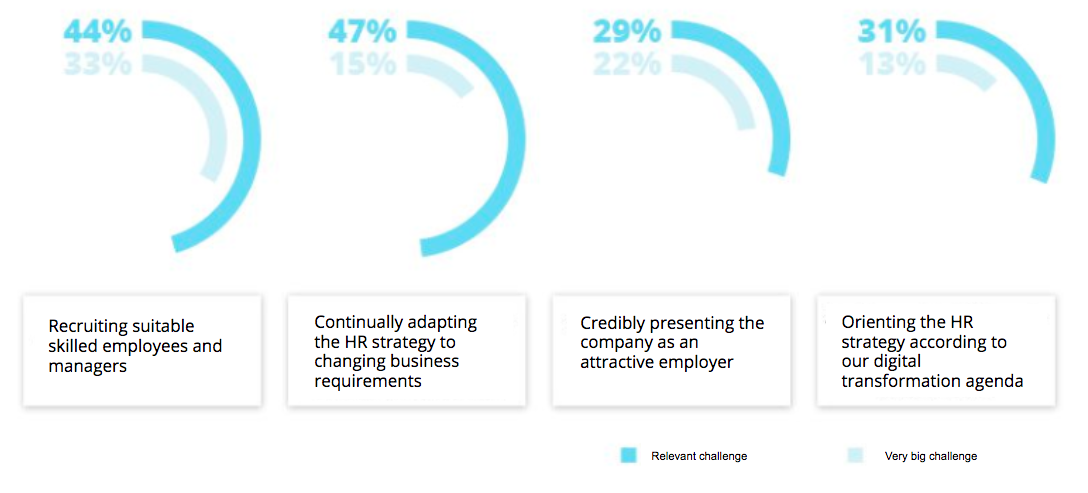
Desire and Reality Diverge Widely in HR Departments
These studies only really reflect one side of the coin, however, as a look into the everyday work of HR departments and the analysis of further studies shows. Desire and reality, self-perception, and external perception are sometimes very far apart.
HR Business Partner Versus “Administrative Experts”
A survey carried out by the Koblenz University of Applied Sciences in 2012 showed that HR managers like to see themselves as strategic partners – HR business partners – of the other departments. In contrast, 70 per cent of the internal HR customers, that is, the managers of other departments, saw HR simply as “administrative experts”.
A 2013 study paints a similar picture: Of the 158 directors and managers surveyed, 67 per cent were satisfied with the HR department’s work. However, when the strategic, value-creating tasks were considered separately, it was a different story. Only 17 per cent of decision-makers consider the HR department to be “very competent’” at finding and developing “qualified, competent managers”; for “dedicated, committed employees”, it was 18 per cent.
Ensure Nothing Gets Forgotten About
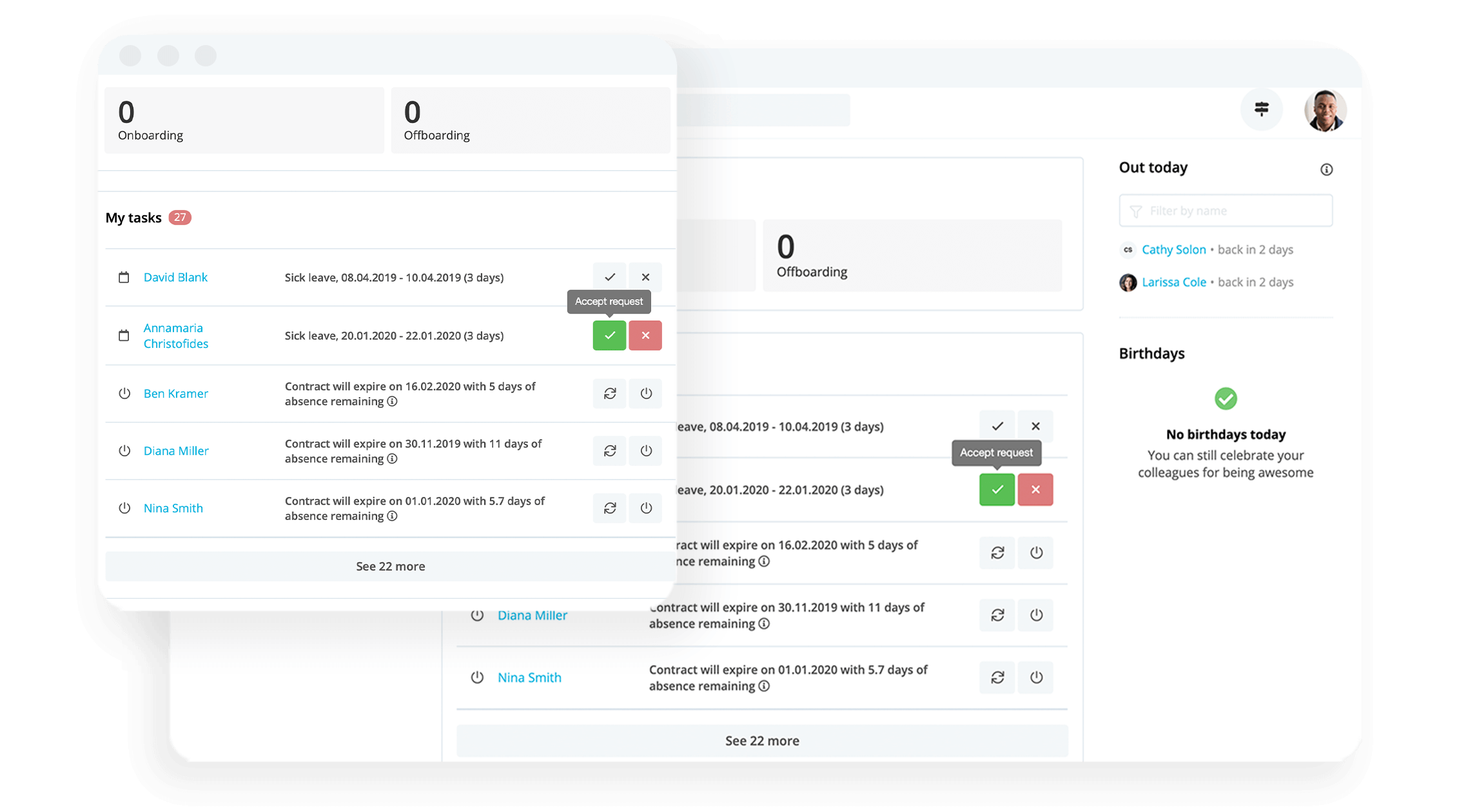
Automatically assign tasks to colleagues and track which to-dos are still outstanding. Get reminders of tasks that are due and important dates like probations, work anniversaries and birthdays.
Manage HR Tasks With PersonioHave these findings changed significantly over the last four years? The management consultancy Kienbaum and the German Association for Human Resource Management have been investigating the role of HR in companies for over 15 years. They have also found an imbalance in favour of operational, administrative HR activities.
In the current study “HR Strategy & Organization 2017”, they state: “In comparison to the 2012/2013 study findings, there has only been partial improvement. […] In terms of adding value, HR has made little progress”. To summarize: In recent years, there has been little progress made towards the goal of focussing more on strategic, future-oriented HR issues.
HR Managers Are Overloaded with Operational Tasks
HR professionals are not doing a bad job – quite the opposite. They are simply far too busy with day-to-day tasks and routine activities. They manage activities rather than shaping them. They are concentrating on the wrong tasks.
Thirty-nine per cent of HR department resources are devoted to purely administrative activities. Fifteen to twenty would be optimal.
The Kienbaum study mentioned above discovered that, on average, 39 per cent of HR department resources are dedicated to service operations alone – to purely administrative activities. An optimal proportion would be only 15 to 25 per cent, that is, about half that. Two thirds of the surveyed companies have over 500 employees. In smaller companies, the proportion of resources devoted to administration is likely to be significantly higher.
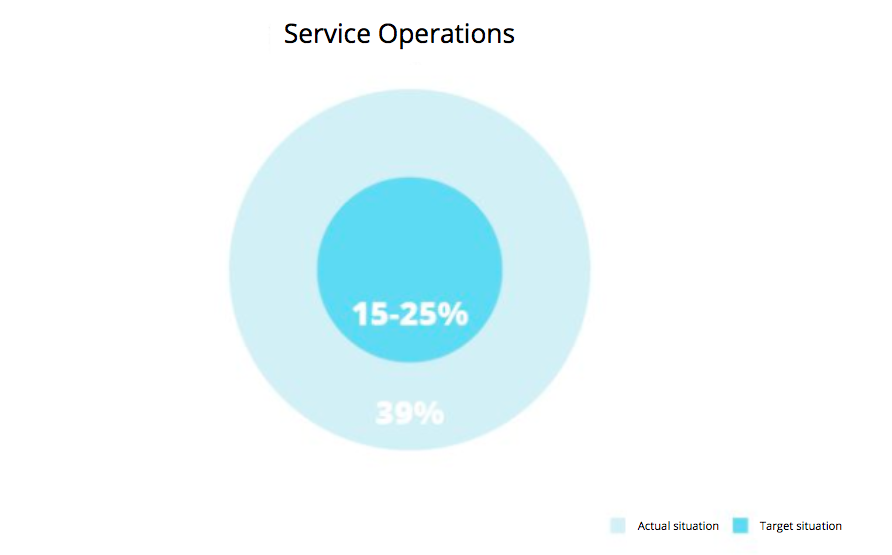
In the meantime, HR decision-makers have themselves recognized the problem. In a recent survey, half the respondents said they had too little time for strategic activities such as talent management. The reason given was the multitude of administrative tasks.
If managers already feel that too much of their time goes to day-to-day tasks, how are things for HR professionals one level down? In small and medium-sized companies, a small HR department – sometimes just one person – is responsible for the entire range of HR work. All too often, their workday consists of activities such as:
Calculating and tracking working hours, time off, and vacation time
Managing and updating employee master data
Preparing payroll or generating it entirely
Managing incoming applications
Drafting contracts, terminations, warnings, and references
Approving training programmes
HR cost controlling
Specifically, HR professionals would like support in dealing with recurring routine tasks. Data management or attendance tracking are labour-intensive and must be done, but do not contribute to the success of the company.
HR Software and Automation Make Room for Important Tasks
Smart HR software is the first step for HR professionals who want to make more time for future-oriented issues. In an internal survey of 96 Personio customers, 70 per cent of them mentioned managing time off and vacation time and employee master data respectively as the most important functions of HR software. Just having support in dealing with these seemingly trivial activities is already a great help.
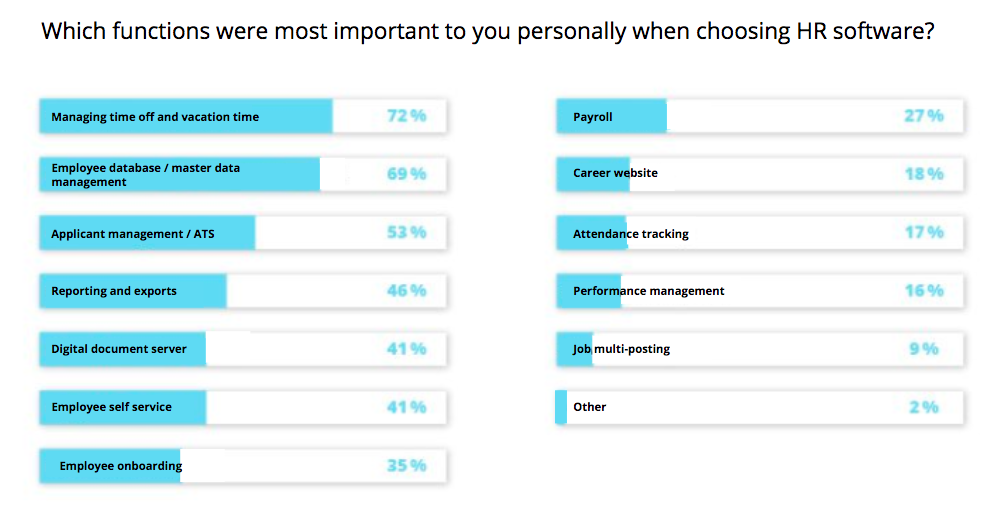
With HR software, many tasks can be speeded up or completely automated. Employees can use self-service functions to track their own working hours and time off independently, check how much time off they have left, or add their new bank details to the system. Going to the HR office and duplicating data will in many cases become unnecessary.
However, when it comes to digitalization and automation, most HR departments have a lot of catching up to do. According to the study “Today’s State of Work: At the Breaking Point” by ServiceNow, only 30 per cent of HR department services are automated. In small and medium-sized businesses, the use of HR software is not necessarily a matter of course, except perhaps for payroll. For two thirds of our customers, Personio is the first time they have used HR software. Previously, everything was done by hand using Excel spreadsheets and other provisional solutions.
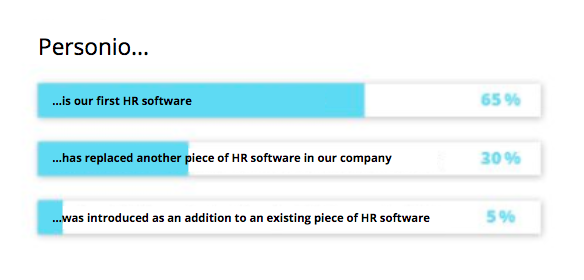
Escaping the Service Provider Mentality and Becoming an Active Participant
Our look at current studies has shown that HR professionals know what is important, and which issues are relevant now and for the future: recruiting and retaining employees, employer branding, corporate culture, flexible working models, etc. Largely, it is implementation that is the stumbling block, as the daily working routine is dominated by administrative tasks and routine work.
HR managers are neither completely responsible for this problem, nor are they alone in suffering from it. Almost all areas “suffer” from too much day-to-day business. However, in view of skills shortages and the immense importance of HR issues, the HR department is especially challenged – even though it secures the future of our companies.
